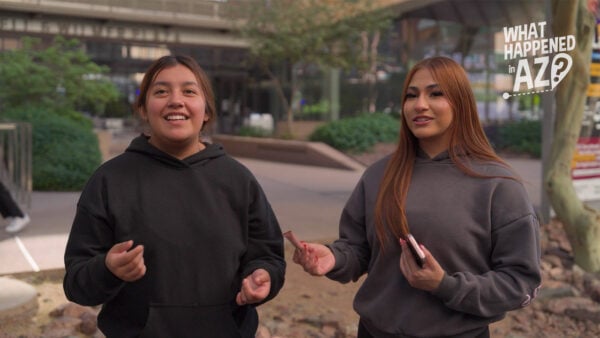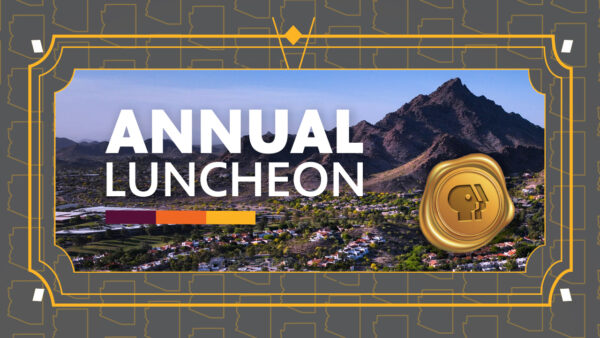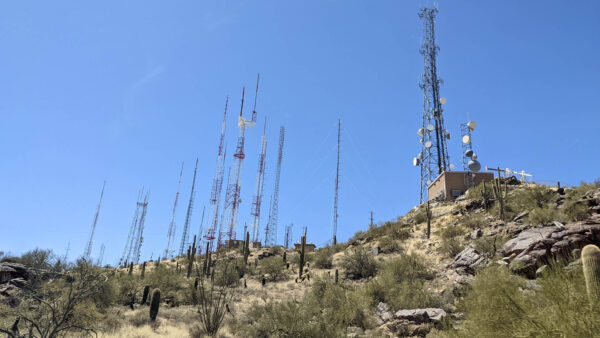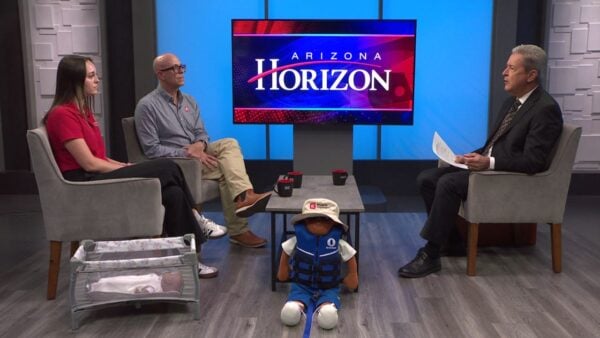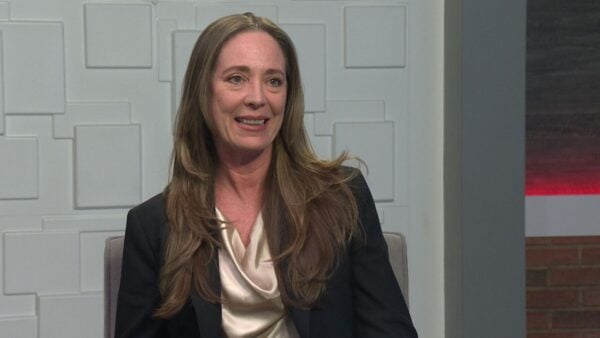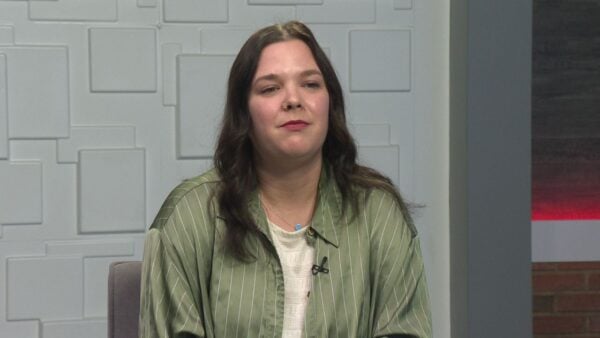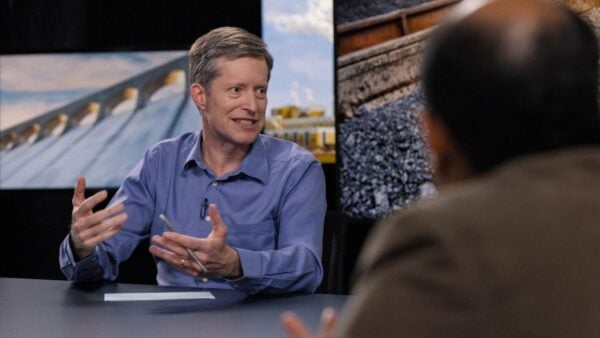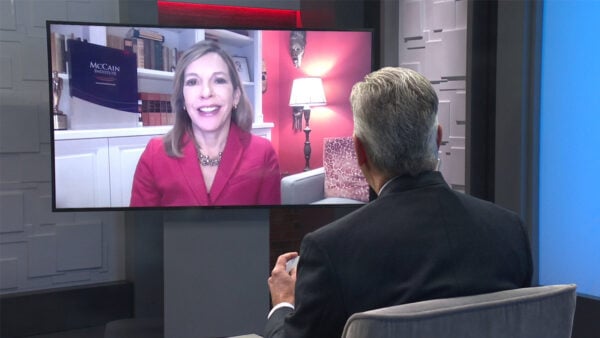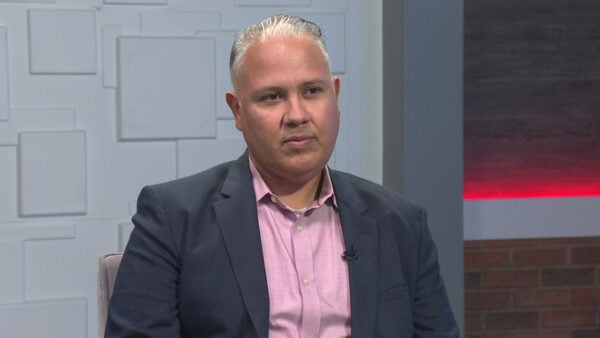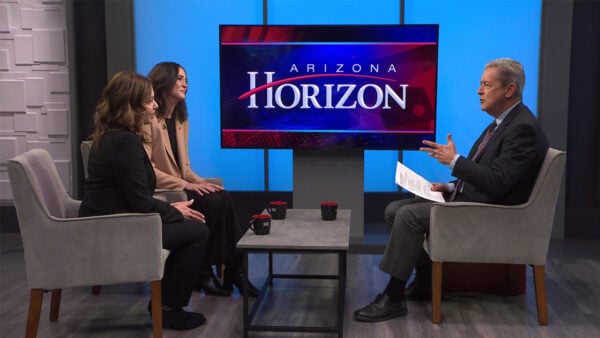“The Future of America’s Past” promises viewers a trip to the “front lines of American history,” where new stories are being written — one tour, one museum, one play, one protest at a time. The half-hour series airs Fridays at 7:30 p.m., beginning Sept. 6 on Arizona PBS,
The series is hosted by historian Ed Ayers, a finalist for the Pulitzer Prize and the National Book Award and founding co-host of the popular podcast “BackStory.” Ayers was awarded a National Humanities Medal by President Barack Obama citing his “commitment to making our history as widely available and accessible as possible.” In “The Future of America’s Past,” he travels to places across the United States where difficult chapters of the nation’s history unfolded — and then, meets public historians there who help Americans understand the past in new, bold ways.
“I hope viewers will see just how multifaceted, vigorous and exciting the practice of American history has become,” Ayers says. “Across the nation, in all kinds of communities, passionate advocates are keeping alive stories the textbooks leave out.”
“The Future of America’s Past” is conversation-based, filmed on-location where history happened, and formed of short segments with Ayers and a rotating cast of National Park Service guides, museum curators, activists, and artists — as well as participants in major historical events and descendants of those who were on the front lines. Ayers reveals tricky parts of American history with a trademark curiosity, collegiality, and clear-eyed focus on figuring out what it meant to live through difficult times. Each episode is 26 minutes long. The first season includes episodes filmed in New York, California, Texas, and Virginia. Topics include the Triangle Shirtwaist Factory fire, a disaster that spurred major labor reforms; the incarceration of Japanese Americans during World War II; the beginning of slavery in British North America and the beginning of its demise; and the making of Texas in the centuries before the Alamo.
The series is made to appeal to viewers who may not identify as history buffs. Through broadly accessible stories of justice and sacrifice, struggle and triumph, the show highlights how the drama of history reveals itself daily in towns and cities across the country.
Hannah Ayers and Lance Warren, married documentary filmmakers based in Richmond, Virginia, created the show and direct and produce “The Future of America’s Past” through their production company, Field Studio. The crew, a diverse, majority-women team, includes Director of Photography Blaire Johnson, Emmy-nominated for her work on the hit PBS series, “A Chef’s Life.”
“There are so many individuals dedicating emotional and creative energy to helping Americans understand our past,” director-producer Ayers reflects. “What that means is that events like the arrival of the first Africans in British North America or the Triangle Shirtwaist Factory fire take on new meanings and new relevance in 2019.” She sees this as an essential part of what makes the show unique. “When Ed has a chance to talk with a survivor or descendant, an artist, a curator or an activist,” she says, “the history feels relatable — and present.”
Warren finds that the show’s smart yet down-to-earth tone demonstrates how to talk about “hard history” constructively — even hopefully. “Often on television,” he says, “we see history used as a
weapon by one side against another. But this isn’t what we’ve seen out in the field.” The process of filming the show, Warren says, has revealed an earnest, reasonable America that can be easy to miss.
“Rather than using the past to argue and divide, the people we’ve met find in our history stories of justice, fairness, and hope that rise above partisan divisions and resonate on a deeply human level.”
Sept. 6: “Freedom’s Fortress”
At Virginia’s Fort Monroe, we discover a remarkable place: the spot where slavery began in British North America, and the site where it began to unravel during the Civil War. From one of the newest National Park Service sites to a historically-minded brewery and more, we learn from a diverse cast of people engaging visitors with defining moments in our national past.
Sept. 13: “The Fire of a Movement”
On March 25, 1911, New York City’s Triangle Shirtwaist Factory burst into flames, and 146 workers — nearly all young women, many of them teenage immigrants — perished. We visit the building and learn how public outcry inspired workplace safety laws that revolutionized industrial work nationwide. Descendants and activists show us how that work reverberates today.
Sept. 20: “Lines in the Sand”
Texas has long been a place of contentious borders and cross-cultural exchange. Six national flags have flown over Texas since the 1500s, starting with European contests for the land that followed 10,000 years of Native American history there. From Spanish missions, to a French shipwreck, to a former sugarcane plantation, we visit to ask: How did Texas become Texas?
Sept. 27: “A Grave Injustice”
Shortly after the attack on Pearl Harbor in December 1941, the US military and the FBI arrested more than 110,000 American citizens of Japanese ancestry. Taken to desert camps and confined for months or years, many of these Americans lost their homes and businesses. We visit the largest of these camps, now a National Park Service site — and meet those keeping memory alive.
